Farming for tomorrow: Abra farmer calls for native crop preservation and youth engagement in agriculture
By James Tababa

Lauro Cacho is a farmer from Abra who has been involved in farming since a young age. In 2015, Lauro established the Kido Integrated Farm through hard work and dedication.
Lauro worked as a driver in Manila in 1992. Despite being away from the farm, Lauro's passion for agriculture remained strong, and they kept himself informed by regularly reading the Manila Bulletin Agriculture magazine and attending the Agri-Kapihan, a free forum for farming enthusiasts where farmers gathered to exchange their experiences, every Sunday. Through these gatherings, the AANI Mango Industry Association was formed, and Lauro became a member. After acquiring valuable knowledge and technology about farming, Lauro retired from his job in Manila and returned to their hometown in Abra. Back in Abra, Lauro focuses on mango production and flower induction, while also tending to his rice farm.
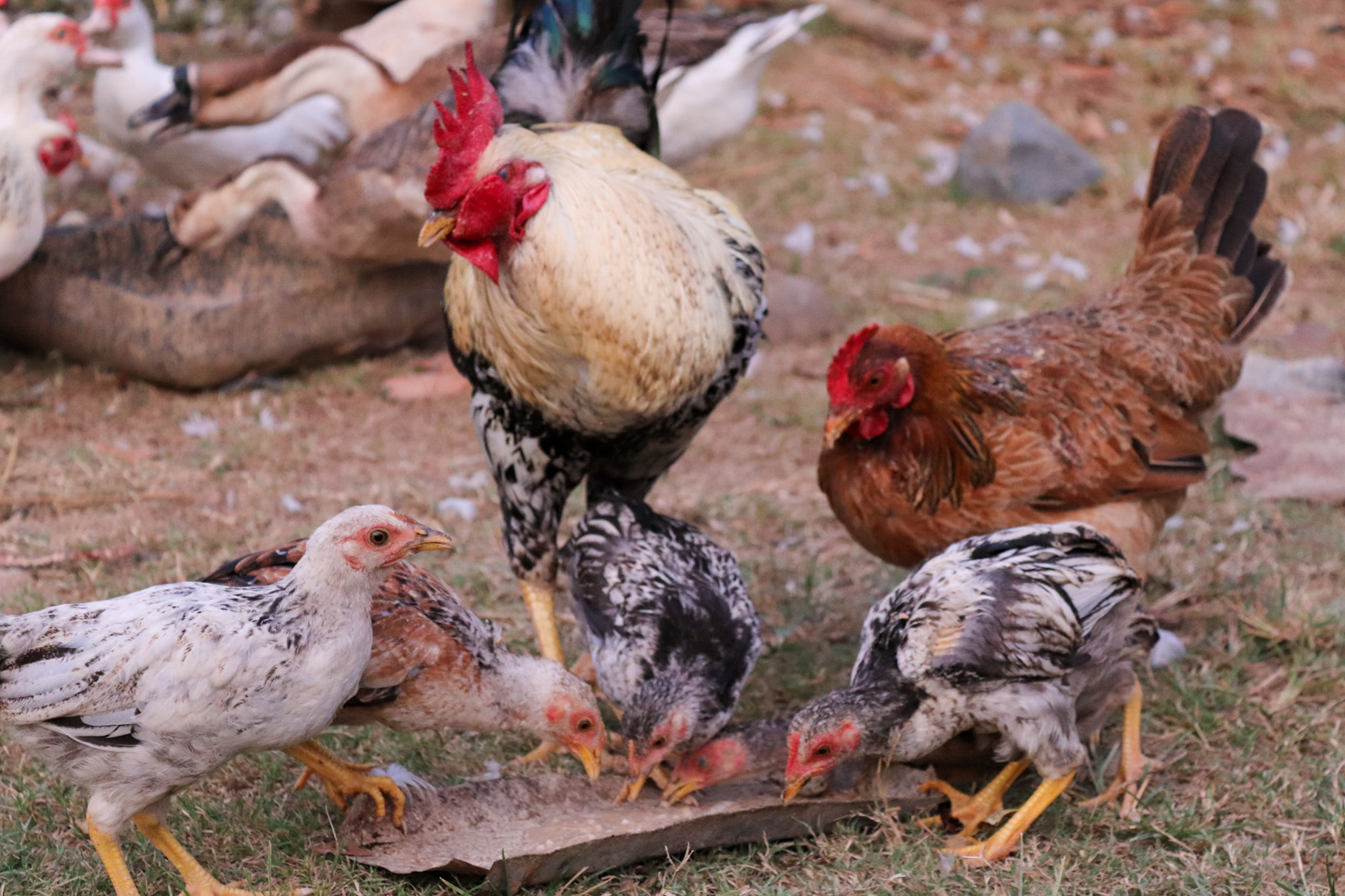
However, the income from farming was insufficient to cover Lauro’s children's education expenses. In 2008, he made the difficult decision to seek employment abroad in order to support his family. Upon returning to the Philippines in 2014, Lauro used the money he had saved from his overseas work to fulfill a lifelong dream - buying his own farm.
The pursuit of a dream
In 2015, Lauro initiated the development of his farm, which spans over 1.5 hectares. While their farm practices organic farming methods, it has not yet been officially certified. Lauro consistently attended training sessions and seminars organized by the Department of Agriculture.
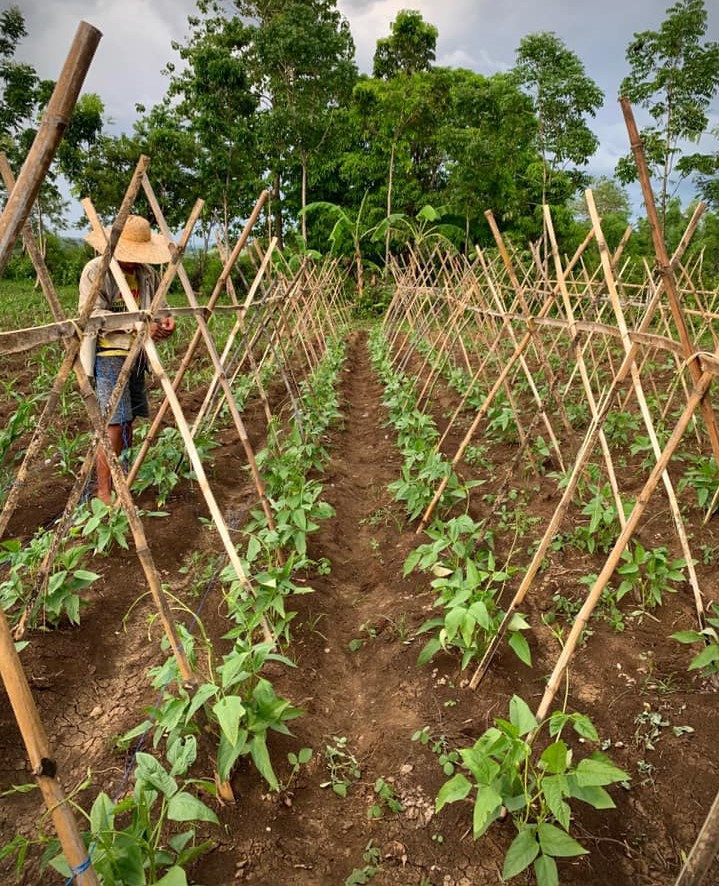
Lauro did not return to mango farming due to the widespread use of chemical substances in the mango industry. Instead, he chose to explore organic farming methods. Additionally, in 2018, Lauro, together with the organic farming enthusiasts of Abra, formed the Abra Organic Practitioner Agriculture Cooperative, reflecting their dedication to promoting organic agriculture practices within the community.
The essence of integrated farming
Lauro Cacho's commitment to sustainable agriculture extends beyond natural farming; they also practice integrated farming, incorporating both crop cultivation and animal raising into their agricultural endeavors.
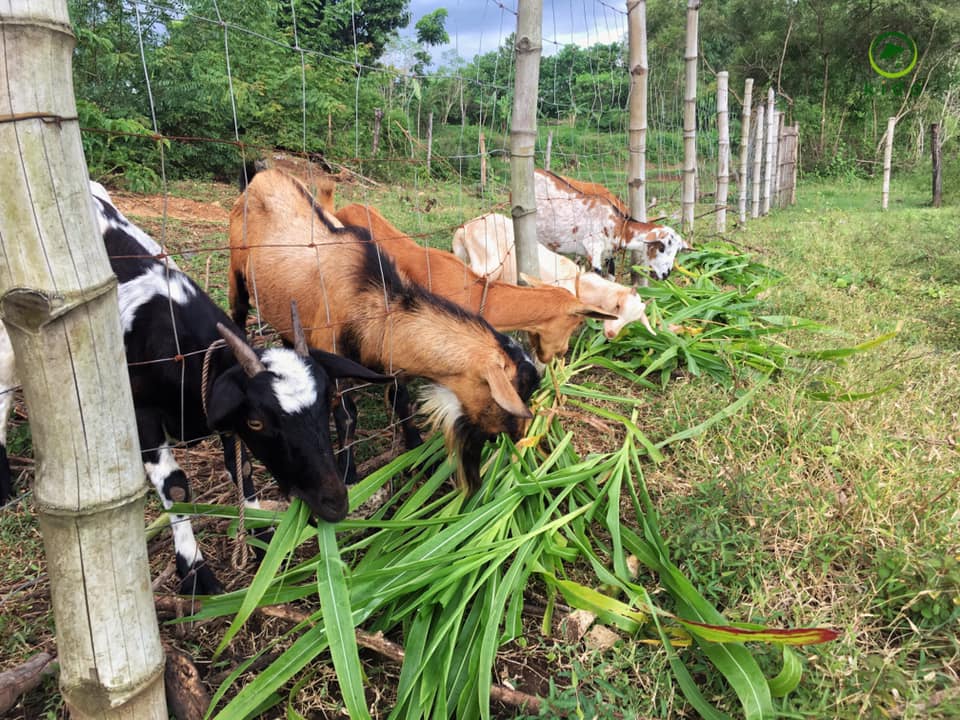
Lauro Cacho has gained valuable insights into the significance of operating an integrated farm that encompasses multiple crops and farming components. This approach proves its worth when one crop faces challenges or fails, as there are other elements within the farm to help offset the expenses.
For instance, Lauro has included sugarcane in his farm, primarily used for vinegar production. Additionally, Lauro cultivates a diverse range of crops, including peanuts, sorghum, white corn, and rice. After the rice season, they strategically plant lowland vegetables such as ampalaya, eggplant, and tomatoes. This diversity in crops ensures a continuous source of income and helps mitigate financial risks associated with crop failures.
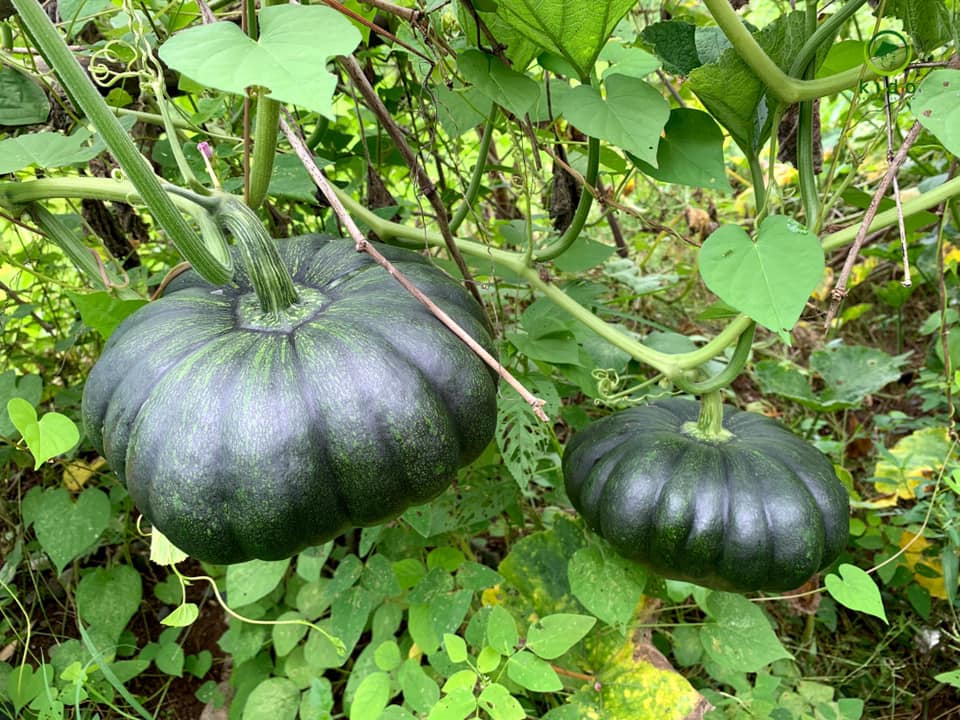
Lauro's interest in sorghum was sparked by a video featuring the former Department of Agriculture secretary, Manny Pinol. Impressed by the potential of sorghum, Lauro ventured into its cultivation and now grows red, white, and Sudan grass varieties. Sorghum has garnered significant interest from others, leading Lauro to sell and deliver sorghum seeds. A regular customer specifically requests organic sorghum to use as feed for their hamsters and birds. Lauro appreciates sorghum's resilience, as it is both drought-tolerant and resistant to pests.
The same principle applies to the animal component of Lauro's farm, where they raise chickens, pigs, and goats. This diversified approach to farming not only offers financial security but also contributes to the overall resilience and sustainability of Lauro's agricultural endeavors.

Preserving indigenous crops and raising native animals
Lauro's farm includes the preservation of native peanuts, characterized by their small size and distinctive red color. Additionally, they cultivate heirloom rice known as Balatinaw, which is a black rice variety. Lauro's decision to grow black rice is based on its superior nutritional value compared to white rice. Being unpolished, black rice contains higher levels of fiber and essential nutrients.
“I firmly believe that preserving native and heirloom crop varieties is essential,” Lauro said. “Not only do they offer superior taste compared to the common commercial varieties, but they also have higher nutritional value, promoting a healthier lifestyle."
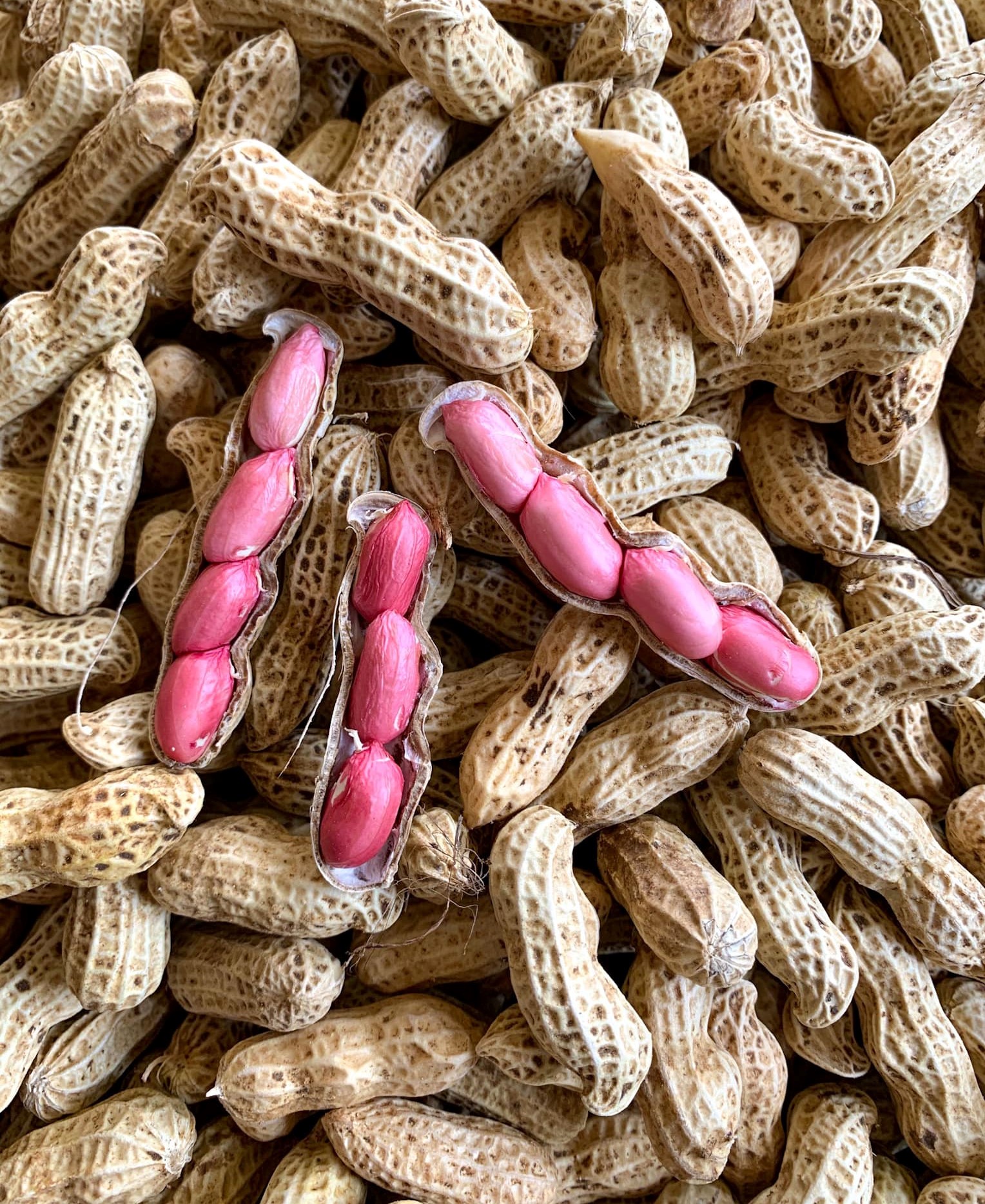
Initially, they raised Dekalb brown chickens, but due to susceptibility to illnesses, they transitioned back to native chicken breeds. Lauro also tends to native goats and pigs.
“What sets my approach apart is the diet I provide them, which isn't comprised of commercial feeds,” Lauro said. “Through the Department of Agriculture's organic program, I was trained in producing our own animal feeds."
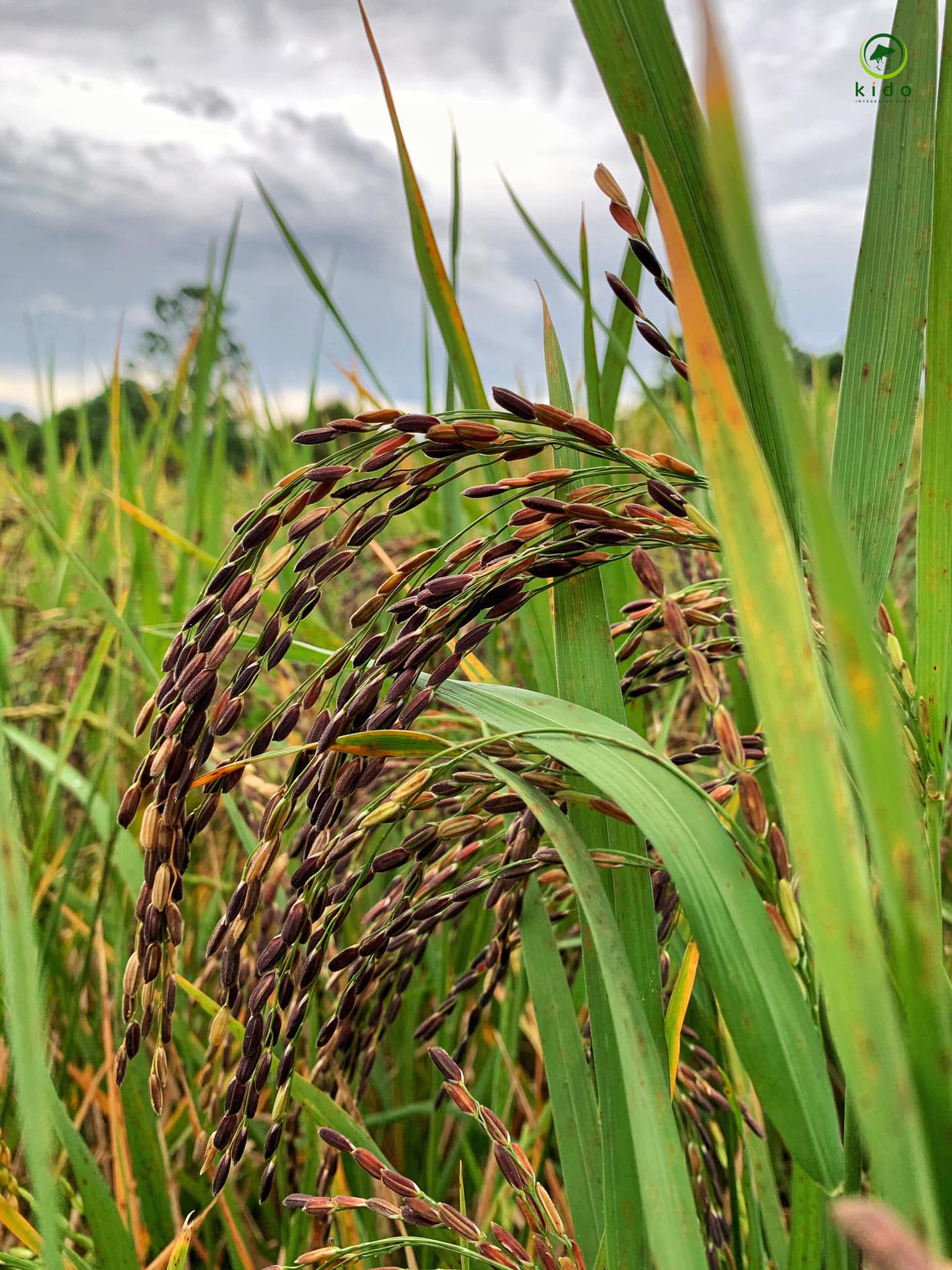
Advocating for natural farming
Lauro Cacho fondly recalls a valuable lesson from their grandfather during his youth – the collection and scattering of carabao manure. “Little did I realize at the time that these were valuable fertilizers,” he said. “Over the years, I've come to understand that organic farming practices are like going back to these traditional methods.”
Lauro recognizes that the use of commercial and synthetic fertilizers and pesticides, while potentially increasing crop yields, can have detrimental effects on both the environment and human health. This realization has motivated him to adopt organic farming practices, prioritizing the well-being of his family.
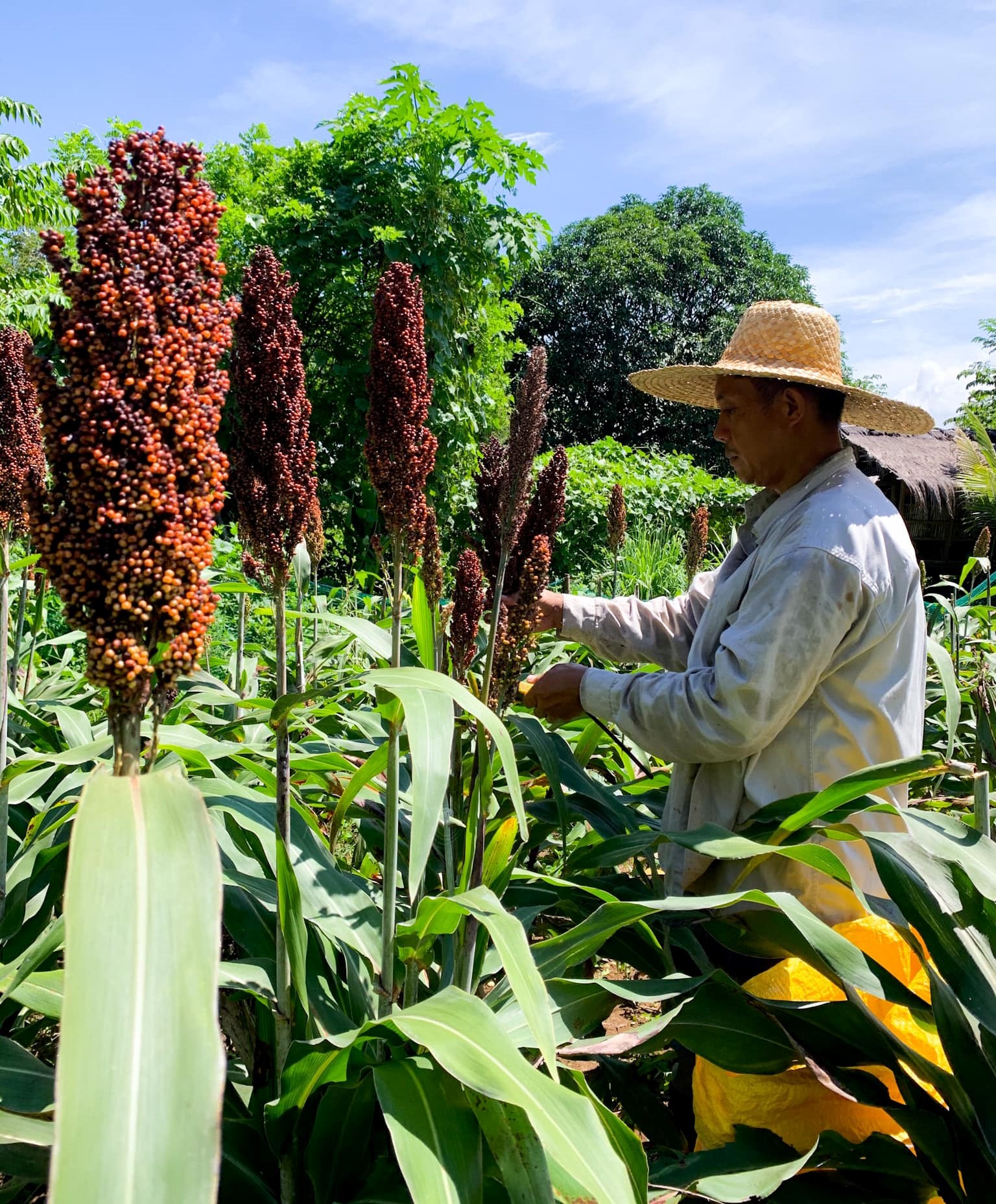
As an advocate for organic farming, Lauro emphasizes the importance of returning to natural farming methods to reduce chemical usage. “In today's world, where numerous health concerns are associated with the food we consume, this approach holds even greater importance," he said.
Passing on the legacy
Lauro's lifelong connection to farming has instilled a profound passion for it and he hopes to pass on to his children. “What I've noticed is that my children share a genuine interest in farming and are enthusiastic about helping me manage our farm, particularly when it comes to marketing our products online,” he said.

Lauro encourages the youth to explore farming and develop an interest in this essential field. He often pondered, "What will happen if farmers like us are no longer around, especially since most of the youth today are not interested in working on farms?"
Lauro urges his children to participate in agriculture, even if they have pursued degrees outside of the field because he believes that while many youths today may not be keen on farming, we truly need more of them to engage in agriculture.
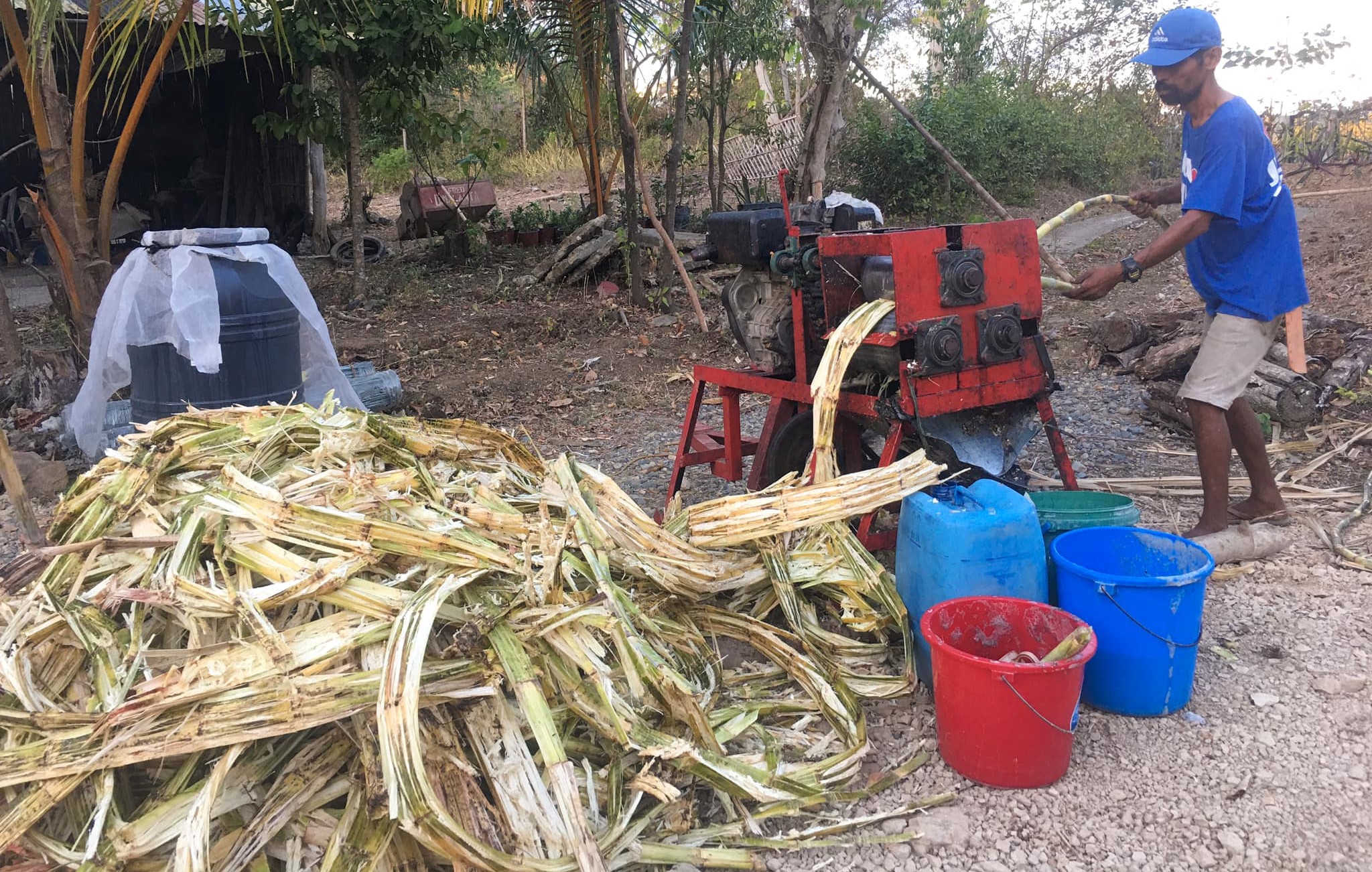
In solidarity with fellow farmers practicing organic farming, Lauro expresses a heartfelt wish for others to gradually transition to natural farming practices. “By reducing dependence on harmful chemicals, farmers can not only contribute to a healthier environment but also lead healthier lives themselves,” he said.
Photo courtesy of Kido Integrated Farm